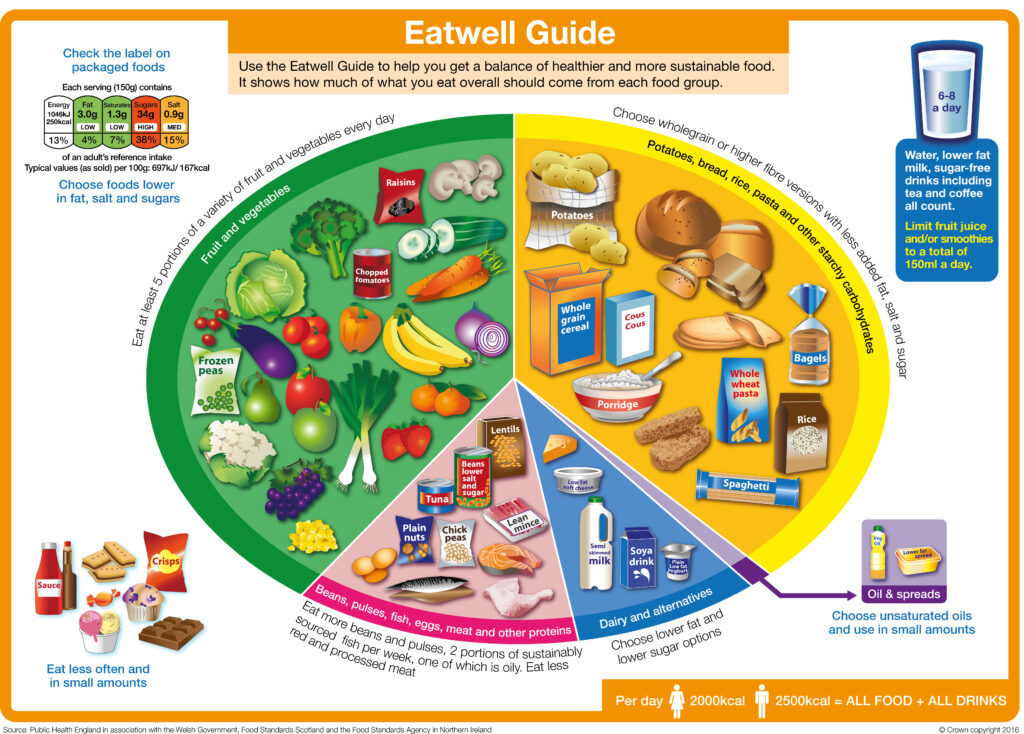UK Plant-Based Group Lays Out 6 Demands from Starmer’s Labour Government
7 Mins Read
Sir Keir Starmer’s Labour government is being called on to introduce a plant-based action plan and reform public procurement to make the UK’s food system more sustainable.
With a new party governing the UK for the first time in 14 years, there are hopes that the change Sir Keir Starmer promised would also bring about a new dawn for the country’s climate plans and food system.
Creating a zero-waste economy, ensuring nature’s recovery, and supporting farmers to boost food security are among the Labour government’s five priorities for the climate. It has also pledged to work with businesses and be pro-innovation.
With these promises in mind, Plant-Based Food Alliance (PBFA) UK – a coalition of 16 organisations and companies, including Alpro, Oatly, Quorn and the Vegan Society – has made six demands of the new Labour government, with the hopes of achieving “the abundant health, economic and environmental benefits of increasing plant-based food consumption”.
PBFA regularly meets with ministers and civil servants on matters related to the vegan food sector, which has continued under Starmer’s premiership. It will be briefing both new and returning MPs on its policy demands to ensure support where needed.

1) Promote plant-based foods as part of sustainable and healthy diets
PBFA asks policymakers across national, regional and local levels to support an increase in plant-based food consumption and the role they plan to help the public eat more sustainable and healthy diets.
These foods should be scoped into new climate and health strategies, such as a land use framework, carbon budget delivery plan or green industrial strategy.
2) Devise a national action plan for plant-based food
The UK is being urged to develop a plant-based action plan to unlock economic opportunities and bolster food security, enabling it to become a leader in the sector. Last year, Denmark became the first country to adopt such a strategy, followed by South Korea.
Policies could include new R&D funding through a partnership between UK Research & Innovation and the Department of Environment, Food and Rural Affairs (Defra), greater support for farmers to grow crops for plant-based products, and increased investment in plant-based production facilities on British farms.
3) Align the Eatwell Guide with sustainability
The UK’s national healthy eating model, the Eatwell Guide, recommends eating five fruits and vegetables a day, dairy and dairy alternatives low in fat and sugar, whole grains over refined, plant proteins like beans and pulses, two portions of “sustainably sourced” fish a week, and less red and processed meat.
PBFA is calling on the government to refresh this guide to include the latest evidence on the health and nutritional benefits of plant-based foods, and incorporate sustainability criteria like GHG emissions and water usage – much like the Planetary Health Diet devised by the EAT-Lancet Commission.

4) Reform public procurement to spotlight planet-friendly foods
Labour must update the Government Buying Standards and the School Food Standards to ensure that all food sold in public sector catering meets robust health, climate and animal welfare criteria. These standards should also be linked to the refreshed Eatwell Guide mentioned above.
The plant-based coalition recommends more fruits and vegetables to be served in catering settings, and at least one nutritious vegan option available on public sector menus daily. More dynamic standards would allow local businesses and farms to benefit from procurement contracts, and they should be legally enshrined to ensure compliance.
5) Grow more fruit, vegetables, fungi and pulses
A plan for the country’s horticulture sector should be developed and implemented as promised in the Government Food Strategy, which would help bolster the UK’s food security by reducing reliance on imports of fruits, vegetables, fungi and pulses grown overseas.
This strategy should be centred on innovation and infrastructure that can help scale up the supply chain to support the expansion of the plant-based food industry.
6) Level the playing field for plant-based
The UK follows pre-Brexit EU rules that prohibit plant-based dairy companies from using terms like ‘milk’, ‘cheese’ and ‘yoghurt’ on their products, but these restrictions must be reviewed. PBFA argues that this would build confidence and drive investment into the category, as well as pave the way for the commercialisation of fermentation-derived analogues.
Additionally, the government should work with retail and out-of-home sectors to help achieve price parity between plant and animal proteins – one way to do so would be to equalise margins.

How realistic are these demands?
It’s one thing to make these asks, but does PBFA feel there’s a realistic chance that they’re taken up by the Starmer government?
“We have been pragmatic in our asks and realistic on what can be achieved, as well as open to working with the wider food sector on a future underpinned by healthier and more sustainable food systems,” highlights Marisa Heath, CEO of PBFA.
“In terms of promoting healthy diets, Labour pledged earlier in the year to take measures that ensure the ‘healthiest generation of children ever‘. Plant-based diets can contribute to this ambition and the Alliance will be connecting with relevant ministers to ensure they are aware of the positive contribution plant-based food makes to the nation’s health,” she tells Green Queen.
The government has broadly set out the need to tackle the financial and labour issues within the National Health Service, which could benefit from adopting plant-based menus and will soon start selling burgers and sausages blended with Quorn’s mycoprotein.
“For long-term solutions, we need to tackle diet change, as obesity and chronic disease [are] a huge burden on our health systems. Plant-based diets have a proven role in tackling obesity and poor health and it seems timely to review the Eatwell Plate,” says Heath.
She adds that if the government is open to receiving and discussing a national plant-based action plan, the sector is prepared to do the work for it: “We believe that is a very small ask at this stage and that there is no reason for the government to not agree to that as we may be able to contribute to plans for economic growth and tackling some of the problems the nation faces.”
Touching upon the demand to grow more produce and whole foods domestically, Heath outlines its food security and national health benefits. “And as it has wide support across sectors, the government will find everyone keen to help,” she suggests.

The hope for alternative protein under Labour
Asked how hopeful PBFA is of progress for alternative proteins under Labour, Heath points to comments made by Starmer in February, when he was leader of the opposition. He stated that under his government, at least 50% of food bought by the public sector would be “locally produced and sustainable”.
“Plant-based food is more sustainable than animal-based food in terms of environmental impact, particularly where emissions are concerned. So we expect Labour’s focus on sustainable food will boost both the profile and uptake of alternative proteins,” says Heath.
“Where public sector catering is concerned, we are already seeing university student unions across the country voting for exclusively plant-based menus and schools adopting the ProVeg School Plates programme, which enables more plant-based food to be served in school canteens. So Labour has a foundation of support upon which to build programmes that increase plant-based food in the public sector,” she adds.
“We also know that Labour set out their support for Henry Dimbleby’s Food Strategy, which sets out the need for alternative proteins in the future food systems.”
Fighting off the livestock lobby

One major roadblock for government action is the influential livestock lobby. Research has shown how meat and dairy companies sway lawmakers to block any unfavourable policies and promote the animal agriculture sector. In the US, for example, the Department of Defense recently abandoned its call for projects to produce cultivated meat for the military, after pressure from livestock groups and some Congress members.
Within the UK, the government has been urged by doctors to retract misinformation-spreading ads promoting meat and dairy. These were initiated by the Agriculture and Horticulture Development Board, a group funded by farmers and food suppliers that falls under the wing of Defra.
“We hope that the government will commit to better transparency around food policy and consider the idea of having a key stakeholder advisory group that enables all sides to discuss the key issues in a clear way,” says Heath.
She adds that the administration must recognise the need to break down silos between policies within Defra, the Department for Energy Security & Net Zero, the Department for Business and Trade, and the Department for Health. “We have a number of big issues which need to be solved by cross-department working and a range of stakeholders including the plant-based sector,” she says.
“We must tackle health issues alongside sustainability issues for example and recognise that we need to set a new vision for food and diet that will involve a number of solutions, and involve businesses both big and small with the help of key NGOs and public bodies. Too much food policy in the past has been done behind closed doors with influence from a small group of large players.”



